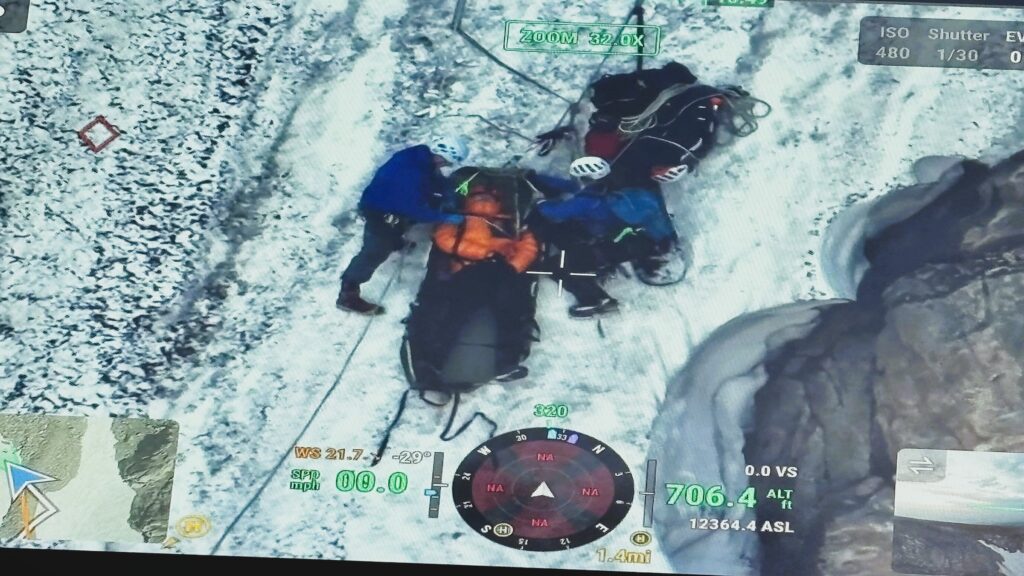The 27-year-old broke his ankle after falling into a deep glacial crevasse known as a bergschrund
Crews worked by the full moon to rescue the snowboarder (Photo: Grand County Search and Rescue)
Published September 12, 2025 03:27PM
A snowboarder in Rollins Pass outside of Denver, Colorado, snapped his ankle after a 100-foot fall down a steep snowfield. First responders safely evacuated the 27-year-old in what the Grand County Search and Rescue (GCSAR) described as a “dangerous and difficult rescue” on September 8.
The Boulder County Sheriff’s Office (BCSO) wrote in an Instagram post that a distress call came in at 2:25 P.M. notifying first responders that an individual had suffered serious injuries on Skyscraper, a permanent snowfield in the Indian Peaks Wilderness, north of Rollins Pass. Located on the Continental Divide, this feature has an elevation of around 12,000 feet.
“The patient, a 27-year-old male, was initiating a snowboard descent of the glacier when he fell, sliding and tumbling approximately 100 feet down the snowfield,” said the BSCO. He eventually came to rest in a bergschrund, a deep crevasse that forms at the head of a glacier.
Professional and volunteer rescuers from a variety of local organizations mobilized to assist the fallen snowboarder. That afternoon, a helicopter inserted a team of rescuers onto a ridgeline above the snowfield. By 5:45 P.M., members of the Rocky Mountain Rescue Group had reached the patient and provided medical care.
Using a pulley system, personnel performed a technical rescue at approximately 150 feet up the 45- to 50-degree snow slope, GCSAR wrote in a Facebook post. The team then hauled the snowboarder up a short, steep section of loose rock to a landing zone. Here, a MedEvac helicopter flying with night vision goggles airlifted the snowboarder off the mountain. Responding organizations reported that the mission was concluded shortly after midnight.
“This mission demonstrates comprehensive collaboration between Boulder and Grand first responders to complete a dangerous and difficult rescue. As always, there is no charge for search and rescue in Colorado,” wrote GCSAR.
In most of the United States, search and rescue services are provided by volunteers free of charge. But some counties are exploring ways to penalize outdoors enthusiasts who require rescue if their behavior is deemed negligent or irresponsible.
Some social media users questioned the validity of free rescue policies in scenarios that could have been avoided. In response, GCSAR directed users to a blog from the Colorado Search and Rescue Organization that explains the sources of funding for the state’s volunteer backcountry search and rescue teams, and links to another page focusing on the philosophy behind providing SAR services free of charge.
“Law enforcement organizations don’t charge when a child goes missing in a city. The Coast Guard doesn’t charge when they respond to a boat accident. FEMA doesn’t charge when a building collapses. Why should backcountry search and rescue be any different?” wrote the Colorado Search and Rescue Association in its blog post.
The National Association for Search and Rescue echoed this sentiment, writing “to eliminate the fear of being unable to pay for having one’s life saved, SAR services should be rendered to persons in danger or distress without subsequent cost recovery from the person(s) assisted unless prior arrangements have been made.”
Recreationalists in Colorado can also purchase a state Outdoor Recreation Search and Rescue Card, which donates a portion of funds to volunteer teams.


